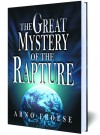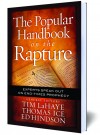
Evangelicals: Stand Up for Jews! – Part 3
There is the story of King Louis XIV having asked Blaise Pascal, the renowned French philosopher, to provide him with proof of the existence of God. Apparently, without any hesitation, Pascal replied, “Why, the Jews, your Majesty—the Jews.” Bible-believing Christians would agree. How can one not but see any Jew today as living proof of God’s existence and faithfulness?
Yet, even as the history of the Hebrews testifies to the glory of God, He set them aside for a time. Says the Bible, a final “time of the Gentiles” was decreed. Jesus Himself identified this time, saying, “They will fall by the sword and will be taken as prisoners to all the nations. Jerusalem will be trampled on by the Gentiles until the times of the Gentiles are fulfilled” (Luke 21:24).
That era certainly came to pass, and continues today. Nebuchadnezzar, the Babylonian king, destroyed Jerusalem and the temple and deported a large part of the Jewish population to Babylon. From that time on, it would be the time of the Gentiles. The world would be ruled by the non-Hebrew nations.
According to Sir Robert Anderson, famed 19th century author of The Coming Prince, now is the sixth, final and longest time that the Hebrews or their descendants are under the domination of the Gentiles—the Diaspora.1 Anderson points out that the Hebrews had been dominated by Gentiles five specific and separate periods before this present age. Quoting him, “They became slaves to the king of Mesopotamia for eight years, to the king of Moab for eighteen years, to the king of Canaan for twenty years, to the Midianites for seven years, and finally, to the Philistines for forty years.”
Yet, despite the Bible’s clear testimony that it remains the era of the Gentiles at this very time, one of the most nefarious and stubborn beliefs about Jews is that they are colluding to control the world. How could this possibly be true?
Jews: Running the World Today?
The Book of Esther in the Bible is a prophetic book, though in a different form than the literal words of the prophets. The entire book is an allegory (better said, a foreshadowing) of what the Jews would face during the Diaspora. The story takes place only two generations after the time that Jews came out of Babylon to resettle Jerusalem. The vast majority (probably nine-tenths) chose to stay in Babylon. Later, some moved elsewhere, including Susa. In the Book of Esther, we see the Jews prospering under the Persian King Xerxes, Esther and Mordecai both piercing into the highest echelons of that society. Extra-biblical records of that era count many Jews as wealthy merchants, traders, and bankers at that time.
In the Esther account, we see that the Jews were viewed as separate, yet “Jewishness” was not necessarily a religious identification, as is true for many Jews today. (No reference to God is made in the entire Book of Esther.) We also note that Jews were liable to persecution. An important perspective of this story is that while the Jews would indeed prosper and gain great influence during the times of Diaspora, they would still be subject to the Gentile. Xerxes, a Gentile, was still very much in charge. So it is today, even closer to home in the United States.
While many Jews have had influential positions in government at various times (Henry Kissinger, Paul Wolfowitz, and more), and may have a strong hand on Wall Street or in Hollywood, it remains the times of the Gentiles. “Core” Jews (those that identify as being Jewish) remain small in number (a little more than one fifth of one percent of the world population). True to Scripture, “The LORD will scatter you among the peoples, and only a few of you will survive among the nations to which the LORD will drive you” (Deuteronomy 4:27).
It is true, however, that by the very dint of their sentence, Jews would frequently find themselves at the forefront of both good and bad movements. The Jew could be found at the edge of change or major world trends, be they social, moral, or economic. But the thing to see is that while influential, they have usually been on both sides of any debate. One thinks of the late 1800s, before 2 million Jews left Russia. Jews made up a large portion of two main opposition parties, the Bolshevik and Menshevik parties. We see this division of the Jews also today in America. Jews actively exercise their opinion and influence on both sides of any spectrum.
These are just some of the many reasons why we can ignore conspiracy theories that claim to involve the Jews, such as the “Protocols of the Elders of Zion.” However, as Bible-believing Christians, we have a strong basis to believe in another agenda, one that God has laid out. First acting in wrath, He will cause the Jews to finally recognize the Messiah, “the one that they have pierced” (Zechariah 12:10). Then, indeed He will place the Jew at the head of the world. However, this will not happen before the time of the Gentiles is ended.
Smug Christianity
In Part 1 of this series, we briefly reviewed the persecution of the Jew by Gentiles. But what of the Christian? Sadly, history records many so-called Christians as having assumed a righteous role in persecuting the Jews. Here also, the atrocities are beyond count.
 For example, most infamously, the Crusades produced incredible horrors, supposedly in the name of Christ. Heinous acts were endorsed, from the Vicars of Christ (the popes) to the state, right on down to the opportunistic soldier. Often, it was done “in the name of Christ.” Said Emicho the Wicked, a German noble who led a rabble of Crusaders (German and French) to slaughter defenseless Jews in Mainz in 1096 AD, “Now let us avenge the blood of ‘the hanged one.’” Or consider this example of a statewide action, as recorded in the Royal Decree, Expulsion from England 1290: “We, in requital for their crimes and for the honor of the Crucified, have banished them from our realm as traitors.”
For example, most infamously, the Crusades produced incredible horrors, supposedly in the name of Christ. Heinous acts were endorsed, from the Vicars of Christ (the popes) to the state, right on down to the opportunistic soldier. Often, it was done “in the name of Christ.” Said Emicho the Wicked, a German noble who led a rabble of Crusaders (German and French) to slaughter defenseless Jews in Mainz in 1096 AD, “Now let us avenge the blood of ‘the hanged one.’” Or consider this example of a statewide action, as recorded in the Royal Decree, Expulsion from England 1290: “We, in requital for their crimes and for the honor of the Crucified, have banished them from our realm as traitors.”
Countless other such statements could be quoted that were, and are today, equally misguided and self-serving. The question begs: If the oppressions of the Gentiles will someday be fully punished (see Psalm 149:6-9), then what of the crimes of so-called Christians? Could it be possible that parts of the true Church have a hand in these sins? Here too, prophecy provides us with some understanding.
The Jew and the Travesty of the False Church
The Prophet Micah uttered a puzzling prophecy:
“Do not gloat over me, my enemy! Though I have fallen, I will rise. Though I sit in darkness, the LORD will be my light. Because I have sinned against him, I will bear the LORD’s wrath, until he pleads my case and establishes my right. He will bring me out into the light; I will see his righteousness. Then my enemy will see it and will be covered with shame, she who said to me, ‘Where is the LORD your God?’ My eyes will see her downfall; even now she will be trampled underfoot like mire in the streets” (Micah 7:8-10).
Who is the enemy here … the entity addressed as “she” in this verse? Nowhere in this chapter is she identified. By deduction, however, we can easily identify her. It cannot be Israel itself, nor can it be the Church (which at this point is already gone). It must be the harlot, the apostate global religion that has enveloped the false church … the same harlot depicted in Revelation 17.
We therefore can know that persecution of the Jews, in whatever form, is a mark of the false church (though surely, some individual Christians have erred in this way). While this persecution has already occurred over thousands of years, the capstone of this insurrection still lies ahead. And the precedent and mindset for this taking place is already well set. Many church denominations today endorse the idea of Replacement Theology, the notion that the Church has replaced the Jews, and thus all the promises to the Jews have been transferred to her. As such, the Jews are of no more consequence. As God is finished with them, the Gentile can therefore do to the Jews as he wishes, for there is no more eternal consequence.
We will not present any arguments as to why this view patently denies Scripture. Suffice it to say that it “distort[s] the words of the living God, the LORD Almighty, our God” (Jeremiah 23:36).
This is part of a re-edited, four-part excerpt from the 2009 book, Preserving True Riches in an Age of Deception and Trouble (secondary title).
ENDNOTE
1 Robert Anderson, The Coming Prince. Kregel Publications, Grand Rapids, MI. 1957 Reprint, p. 83.
Midnight Call - 05/2024










